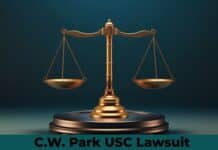The Basics Of Wrongful Dismissal In Canada
When it comes to employment, there are certain things that are considered “at-will”. This means that an employer can terminate an employee at any time and for any reason, as long as it’s not illegal. With that said, there are still some situations where an employer cannot legally fire an employee in Canada comparable employment.
For example, if an employee is fired because of their race, religion, gender, or another protected characteristic, this would be considered discrimination and would be illegal. Additionally, if an employee is fired in retaliation for whistle-blowing or filing a complaint against their employer, this would also be illegal.
Generally speaking, however, an employer can terminate an employee without cause as long as they provide proper notice or pay severance pay in lieu of notice. This means that if you’re an employee in Canada, your employer doesn’t need a reason to fire you, they just need to give you advance warning or provide you with financial compensation in lieu of the reasonable notice.
There are some exceptions to this rule, however. If you have an Alberta employment law contract that outlines specific reasons for which you can be fired, then your same employer must adhere to those provisions. Additionally, if you’re a member of a union, there may be certain procedures that need to be followed in order for your termination to be considered valid.
In summary, while an employer can technically fire an employee for no reason in Canada, there are still some situations where this would not be legal. If you believe that you have been wrongfully dismissed, it’s important to speak with experienced employment lawyers who can help you understand your rights and options.
What To Do If You Think You’ve Been Fired Without Just Cause
If you think you’ve been fired without just cause in Canada, there are a few things you can do. You can file a complaint with the Canadian Human Rights Commission or a similar organization, or you can file a workers’ compensation claim.
If you choose to file a complaint with the Canadian Human Rights Commission, they will investigate your claim and determine whether or not there is enough evidence to support your allegation of discrimination. If they find that discrimination did occur, they will work to resolve the issue through mediation between you and your former employer.
If you choose to file a lawsuit against your former employer, you will need to prove that you were fired without just cause. This can be difficult to do, but if you are able to prove it, you may be awarded damages.
No matter what route you choose to take, it’s important to speak with an experienced employment lawyer before taking any further action. They can help you understand your rights and options, and they can give you the best chance of success in whatever course of action you decide to take.
How To Prove That You Were Wrongfully Dismissed In Canada
If you’ve been wrongfully dismissed from your job in Canada, there are a few things you can do to prove it. First, check your provide reasonable notice alternative employment contract to see if there are any clauses that state under what conditions you can be fired. If there are no such clauses, then you may be able to argue that your dismissal was wrongful.
Next, gather any evidence you have that shows you were not at fault for the dismissal. This could include performance reviews, witness statements, or anything else that demonstrates your good standing with the company minimum severance pay.
Lastly, consult with an experienced lawyer to determine if you have a case for wrongful dismissal and how best to proceed. With the right evidence and legal representation, you stand a good chance of being reinstated in your job or receiving financial compensation for the loss of your position.
What Damages Can You Receive If You’re Successful In A Wrongful Dismissal Case
If you’re successful in a wrongful dismissal case in Canada, you may be entitled to receive:
- Compensation for lost wages
- Compensation for bonuses or other benefits you would have received had you not been wrongfully dismissed
- Reinstatement to your former position
- Punitive damages in some cases
In order to determine the number of damages that may be available to you, it is important to consult with an experienced employment lawyer. They will be able to review the specific facts of your case and provide guidance on what you may be entitled to.
It is also important to note that if you are successful in a wrongful dismissal case, your employer may be required to termination pay your legal fees. This can be an important factor to consider when deciding whether or not to pursue a claim.
If you have been wrongfully dismissed from your job, it is important to seek legal advice as soon as possible. An experienced employment lawyer can help you understand your rights and options, and ensure that you receive the compensation you deserve.
The Importance Of Having A Good Employment Lawyer On Your Side
When it comes to employment common law, there are a lot of different things that you need to know. For instance, you need to know your rights as an employee, and you also need to know the laws that protect you from being fire employees without cause. In Canada, there are laws in place that protect workers from being unfairly dismissed from their jobs.
However, these laws are not always enforced, and sometimes employers will try to get around them. This is why it is so important to have a good employment lawyer on your side.
An experienced employment lawyer will be able to tell you whether or not you have a case for wrongful dismissal. They will also be able to advise you on the best course of action to take and help you to get the compensation that you deserve. If you have been wrongfully dismissed from your job, then you may be entitled to reinstatement, back weeks’ pay, and other damages.
If you are thinking about taking legal action against your employer, then it is important to speak to an employment lawyer as soon as a possible minimum notice period. They will be able to assess your case and let you know whether or not you have a strong case employment relationship.
They will also be able to tell you what kind of compensation you might be entitled to. It is important to remember that every case is different, and the amount of compensation that you are entitled to will depend on the specific circumstances of your case.





